News
Crypto-Supporting Digital Cards to be Launched Soon in China and Korea
UnionPay, an analogue for Visa and Mastercard service providers, has partnered with Danal, a Kore...
 Explore More
Explore More
News
Deepfakes on TikTok raise new security concerns
Deepfakes have started showing up on the popular video app TikTok, owned by ByteDance, a Chinese ...
 Explore More
Explore More
News
FATF Member, Saudi Arabia, Winning the World Money Laundering Race
During a virtual meeting on Monday, the FATF supported Saudi Arabia to combat money laundering an...
 Explore More
Explore More
News
Founders of BitMEX Penalised for Their Inefficacy in Preventing Money Laundering
Arthur Hayes, Benjamin, Delo, and Samuel Reed – the co-founders of BitMEX charged for viola...
 Explore More
Explore More
News
Canada’s Real Estate a Safe Haven for Money Laundering, Confirms Intel
Intel has confirmed the findings of CISC’s report saying that Canadian real estate is a safe have...
 Explore More
Explore More
News
Coinbase Attorney Urges SEC to Announce Crypto Rules
Coinbase’s attorney forced the Securities and Exchange Commission (SEC) to announce a trans...
 Explore More
Explore More
News
Action Fraud alerts shoppers about COVID-19 scams
Retail stores and other non-essential shops are recommencing across the United Kingdom, but many ...
 Explore More
Explore More
News
The UK Law Firms Approve the Use of AI in AML Armoury
The Legal Sector Affinity Group is the governing body of all the UK’s legal regulatory and repres...
 Explore More
Explore More
News
New Jersey Hospital System Hit By a Ransomware Attack
One of the largest hospital systems of New Jersey has reported that it was hit by a ransomware at...
 Explore More
Explore More
News
China Introduces 5-Point Strategy to Enforce Crypto AML Measures
China’s newly appointed governor of the Central Bank emphasised the AML regulations to safeguard ...
 Explore More
Explore More
News
Crown Casinos Fined $450 Million for AML Failures
Casino operator Crown should pay a fine of $450 million for 546 violations of anti-money launderi...
 Explore More
Explore More
News
The US Treasury Department OFAC Enforces Whistleblower Programmes
According to the US Treasury’s Department Office of Foreign Assets Control (OFAC), companies must...
 Explore More
Explore More
News
US Accuses Crypto Firms for Serving as Money Laundering Hub
The US Treasury’s department targeted the crypto mixers to combat internationally operated financ...
 Explore More
Explore More
News
FCA Advises Firms to Embed Data and Technology to Combat Financial Crimes
Sarah Pritchard, the FCA executive director of markets, spoke at the Financial Crime Summit in Lo...
 Explore More
Explore More
News
German Law Firm Denies Money Laundering Allegations Against Deutsche ReGas
Hengeler Mueller, a German law firm, investigated the loopholes in the Anti-Money Laundering (AML...
 Explore More
Explore More
News
Money Laundering Scheme by Crime Gangs Focuses on Ireland
International criminal organisations are using millions of euros in legitimate products to mask s...
 Explore More
Explore More
News
Australia, Singapore, Malaysia, and RSA Team Up for CBDC Trials
Central banking entities of Singapore, Australia, Malaysia, and South Africa agree on a mutual ag...
 Explore More
Explore More
News
Capital One Penalized $390M for ‘Willful’ Violation of the Bank Secrecy Act
Financial Crimes Enforcement Network (FinCEN) has imposed $390 million as penalty on Capital One ...
 Explore More
Explore More
News
Irish Police warns about the latest internet fraud
The local Irish police (Gardai) is persuading people not to fall prey to the recent online bankin...
 Explore More
Explore More
News
More Crypto Regulations on Their Way, Says Head of Turkish Central Bank
A few days ago, the Turkish Central Bank imposed a complete ban on cryptocurrency payments. Now,...
 Explore More
Explore More
News
US Authorities Impose Anti-Money Laundering Crackdown on Offshore Lenders
The US Financial Crimes Enforcement Network (FinCEN) threatened offshore lenders with Anti-Money ...
 Explore More
Explore More
News
COVID Vaccine Certificate Fraud Leads to Suspension of GGD Employees
A 20-year-old man arrested for being a part of Covid-19 certificate fraud. Many GGD employees are...
 Explore More
Explore More
News
Vietnam’s New Legislation on E-Transactions Will Take Effect on July 2024
The National Assembly of Vietnam passed the new e-Transaction law replacing the previous one, No....
 Explore More
Explore More
News
Leading MSB Industry Associations Introduce Best Practices For Anti-Money Laundering
The introduction of the best practices for anti-money laundering by leading MSB industry associat...
 Explore More
Explore More
News
FATF issues new guidance on Digital Identity systems
A guidance paper has been issued by the Financial Action Task Force (FATF) to assist governments,...
 Explore More
Explore More
News
FSA Imposed £247,324 Fine on Standard Bank for “Serious Regulatory Failings”
The Isle of Man Financial Services Authority (IOMFSA) has imposed EUR 247,324 fine on Standard Li...
 Explore More
Explore More
News
Over a Million T-Mobile Customers Affected By a Data Breach
T-mobile suffered a data breach earlier this month, the company confirmed this on their website t...
 Explore More
Explore More
News
Non-Compliant Banks Can End Up In FATF’s Gray list – Warns Governor of the South African Reserve Bank
Lesetja Kganyago, Governor SARB confirms to the Parliament’s standing committee about the i...
 Explore More
Explore More
News
Hogan and other US Top Official Become the Victim of Identity Theft
A fraud scheme attacking top government officials of Maryland State has been uncovered. The schem...
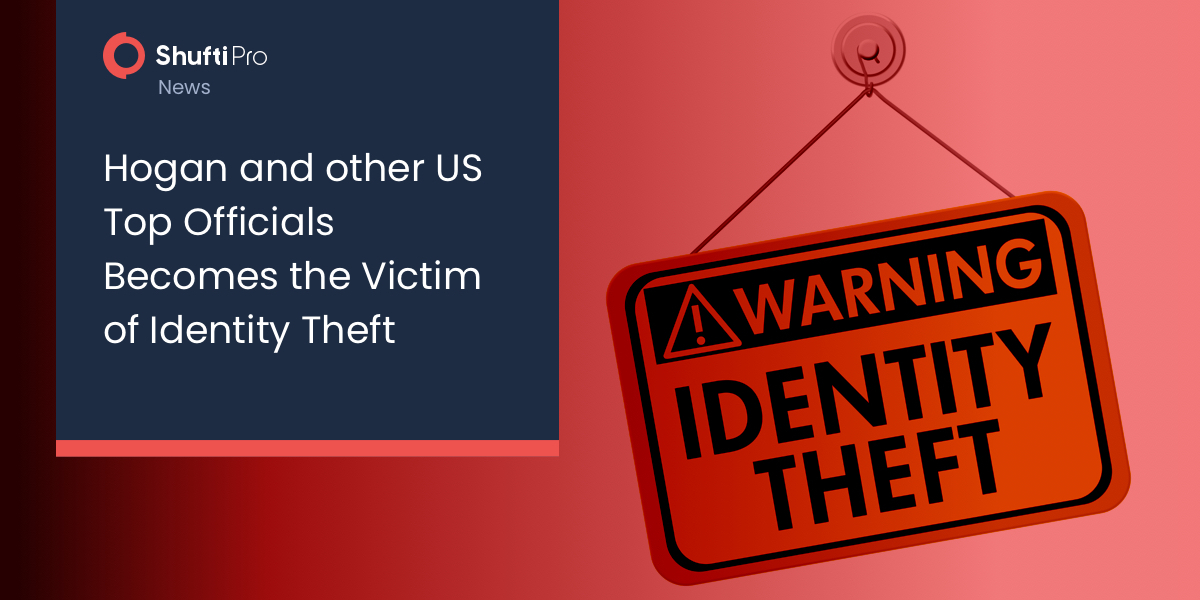 Explore More
Explore More
News
Surging Cryptocurrency Scams Target Lower Mainland Seniors
CARP of South Surrey/White Rock has found that the surge in cryptocurrency scams are a threat to ...
 Explore More
Explore More
News
FinCEN Proposes Beneficial Ownership Reporting Requirements
The FinCEN proposed beneficial ownership reporting requirements to protect U.S financial system f...
 Explore More
Explore More
News
US Court Sentences Nigerian FinTech Executives for Money Laundering Worth $167 Million
The US Court jails the Fintech Executives of Nigeria over a Money Laundering Case comprising $167...
 Explore More
Explore More
News
30 Swiss Banks Failed Money Laundering Regulatory Analysis Test
The Swiss financial regulatory authorities overviewed the security of the banking sector and noti...
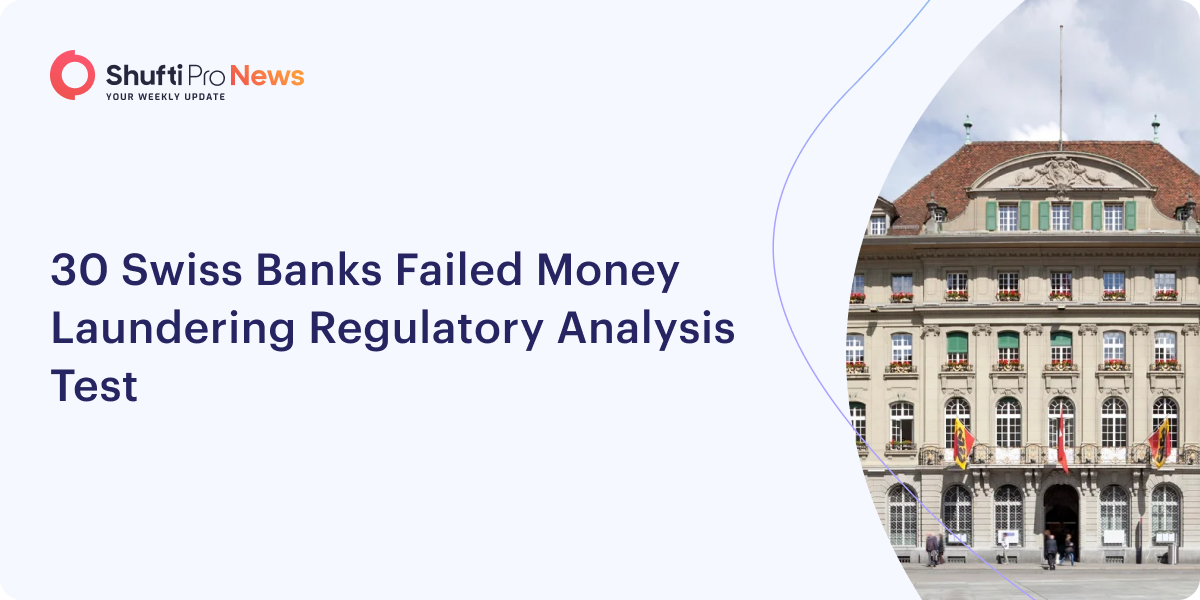 Explore More
Explore More
News
Dutch Rabobank Under Investigation Over Suspected AML/CTF Violations
According to the Netherlands’ second largest money lender, Dutch prosecutors are investigating Ra...
 Explore More
Explore More
News
Mass Stablecoin Adoption Could Assist Financial Crime – Says FATF
FATF suggests nations and financial service providers should identify potential risks of cryptocu...
 Explore More
Explore More
News
SFMS Reports Blocking Russian Crypto Exchanges
Ukraine’s financial monitoring agency has restricted access to several online crypto exchan...
 Explore More
Explore More
News
Tech Analysts Say Elgin Data Breach May Prove “Devastating” for Those Vulnerable to Identity Fraud
Technology experts raise questions about the lack of transparency of the municipality in dealing ...
 Explore More
Explore More
News
Singapore’s Regulatory Authority Fines US$1.7M to Resorts World Sentosa for Due Diligence Failure
The gambling operator, Resorts World Sentosa (RWS), was fined by Singapore’s Gambling Regulatory ...
 Explore More
Explore More
News
European parliament imposes ban on facial recognition technology
Following a public outcry after the leak of an internal memorandum discussing the utilization of ...
 Explore More
Explore More
News
Fintech Requires Tight Controls to Mitigate Data Privacy Risks, Treasury Report
As per the new report by the U.S. Department of the Treasury, Fintech requires tight controls to ...
 Explore More
Explore More
News
Amazon Warns UK Customers Over Rising Threat of Impersonation Scams
Amazon has cautioned UK customers about the rising threat of impersonation scams via phone calls,...
 Explore More
Explore More
News
$8.6bn Lost to Cryptocurrency-based Money Laundering in 2021
‘The 2022 Crypto Crime Report’ by Chainalysis has revealed that a total of $8.6 billion was lost ...
 Explore More
Explore More
News
BitMEX Founders Admit Violating Anti-Money Laundering Regulations
Two of the co-founders of crypto exchange BitMEX Arthur Hayes and Benjamin Delo have pleaded guil...
 Explore More
Explore More
News
Australia to Ban Credit Cards for Online Gambling to Prevent Payment Fraud
The Australian government will soon ban online gambling with credit cards. The government will in...
 Explore More
Explore More
News
US Court Declares Bitcoin and ETH as Commodities, Dismissing Uniswap Lawsuit
A US court dismissed the Security Exchange Commission (SEC) lawsuit against the Uniswap protocols...
 Explore More
Explore More
News
Brazilian Police Block Crypto Assets Due to Suspected Fraud
Brazilian police have requested the court to block the virtual assets of suspected digital tradin...
 Explore More
Explore More
News
“The Community” Fined $120M for Multi-million Cryptocurrency Theft Scheme
A sixth member of “The Community” was sentenced to 10-month imprisonment and over $120,000 fine f...
 Explore More
Explore More
News
South Africa links fintech startups with financial regulators
South Africa’s financial regulators have initiated the Inter-governmental Fintech Working Group (...
 Explore More
Explore More
News
Luxembourg Updates AML Laws for Verification of Beneficial Ownership
Luxembourg has amended its Anti-Money Laundering regulation requiring practitioners to identify b...
 Explore More
Explore More
News
UAE Issues a Total of $11 Million in Fines for AML Offenses in First Half of 2022
UAE’s AML task force has imposed fines of over Dh41 million ($11m) in the first six months of 202...
 Explore More
Explore More
News
Swedbank Estonia Reports High-Risk Client for Laundering $2 Billion
Swedbank Estonia labeled one of its clients a “high-risk” company due to suspicious transactions ...
 Explore More
Explore More
News
Hong Kong Provides Guidance to Fight Financial Crimes Emerging from COVID-19
The Monetary Authority in Hong Kong (HKMA) has issued new guidelines for the banks on merging ext...
 Explore More
Explore More
News
Turkish President Announces New Crypto Bill to Legalize Virtual Assets
Turkey’s Parliament to announce the cryptocurrency bill in the coming weeks. Legal framework will...
 Explore More
Explore More
News
Uganda Remains on FATF Graylist for Failing to Curb Money Laundering
Uganda is still under the scrutiny of AML/CFT agencies after failing to enforce regulations in NG...
 Explore More
Explore More
News
Online Gambling Operator Penalized Over Failure to Meet Anti-Money Laundering Regulations
Boylesports, an online gambling operation is facing £ 2.8 million in fines for violating the regu...
 Explore More
Explore More
News
Singapore Seizes $736m Worth of Assets in Money Laundering Investigation
Singapore police have arrested 10 foreigners in the money laundering operation and seized $736m w...
 Explore More
Explore More
News
South African Government Passes Key AML and CFT Laws to Fight Financial Crimes
South African government passes two significant laws to implement Anti Money Laundering and Count...
 Explore More
Explore More
News
New Zealand Encounters Spike in Online Identity Theft
Recent research of New Zealand’s financial market has shown a spike of 86 percent in identity fra...
 Explore More
Explore More
News
Banks Creating Regulations for the Cannabis Merchants for Better Compliance
Growing and dealing in cannabis was illegal a few years back. However, the medical benefits of ma...
 Explore More
Explore More
News
Surge in Identity Theft Frauds During Covid-19
According to new data from the Federal Trade Commission (FTC), identity theft has risen to the nu...
 Explore More
Explore More
News
Kuwait Bans Crypto-Related Activities to Combat Money Laundering
The government of Kuwait banned all crypto-related activities on July 18th, including mining, tra...
 Explore More
Explore More
News
Fiat is the Top Choice of Currency for Financial Criminals, Says US Treasury
The US Treasury Department has released a three-year report on money laundering and terrorist fin...
 Explore More
Explore More
News
FATF Removes Malta From gray List of Untrustworthy Financial Jurisdictions
After one year of being included in the FATF grey list, the global action committee has voted Mal...
 Explore More
Explore More
News
AUSTRAC Hits Military Bank with Enforcement Action to Ensure AML Compliance
The financial regulator in Australia has hit the Australian Military Bank with implementation act...
 Explore More
Explore More
News
Central Bank of Bahamas Calls for Stringent Due Diligence in the Wake of FTX Collapse
The Bahamas’ Central Bank has called for stricter due diligence while moving funds in the w...
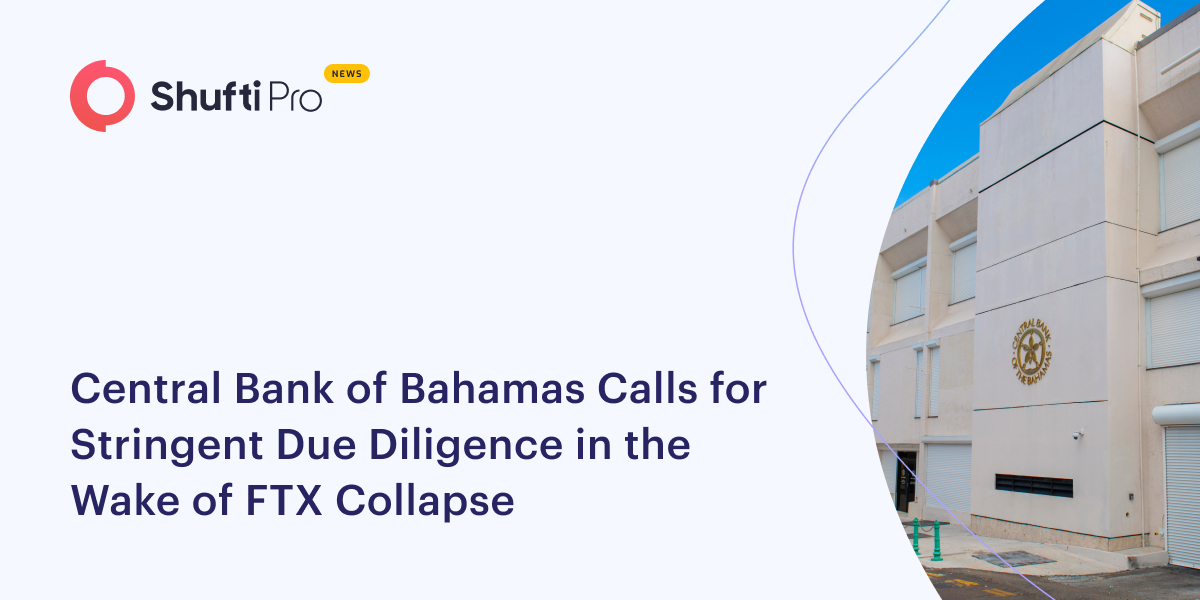 Explore More
Explore More
News
Ransomware attacks increase as more people work from home
According to a study published by the cybersecurity firm, Proofpoint, there has been an increase ...
 Explore More
Explore More
News
FINRA Issues Guidelines Regarding Penalties for Anti-Money Laundering Violations
FINRA has issued its first-ever guidance to its member broker-dealers about the penalties that wi...
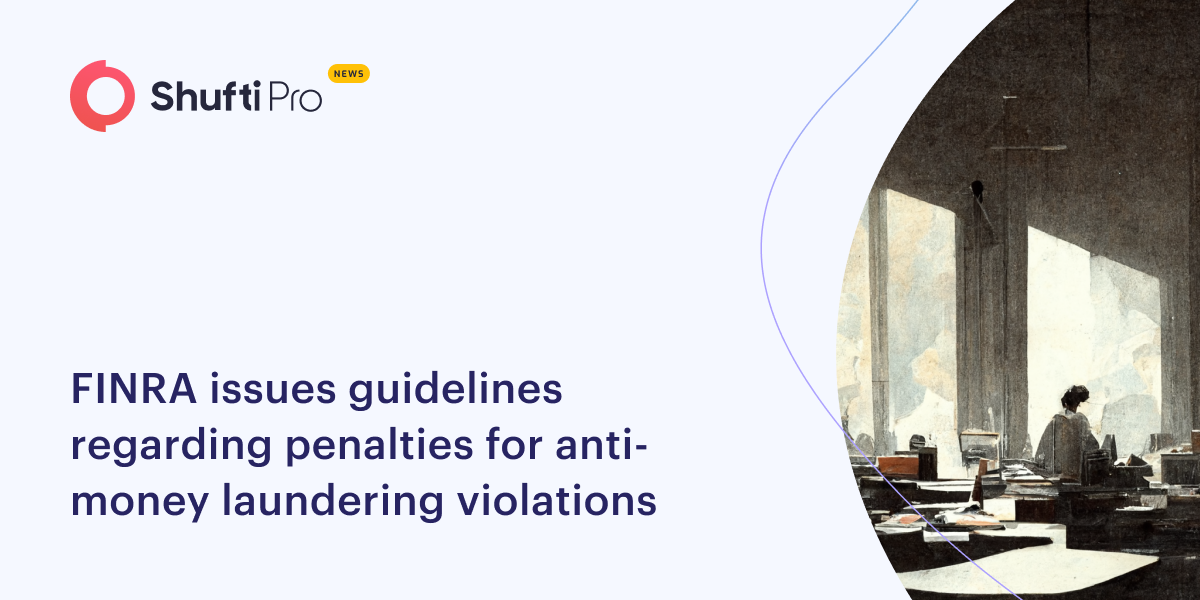 Explore More
Explore More
News
CSIR Reports Surge in Cybercrimes Pertaining to Work-from-home Culture
The Council for Scientific and Industrial Research (CSIR) has reported that cyberattacks have inc...
 Explore More
Explore More
News
Monetary Authority of Singapore to Take Tougher Action Against Data Breaches
To address the data privacy concern, MAS has recommended that data privacy offences should be mad...
 Explore More
Explore More
News
Leaked Draft: EU Plans to Ban Privacy Enhancing Crypto Coins
CoinDesk has received a leaked draft of the money laundering bill, disclosing plans of the Europe...
 Explore More
Explore More
News
IMF Seeks Tighter Checks on Kenyan Banks Amid Money Laundering Concerns
The International Monetary Fund (IMF) is tightening the checks to prevent money laundering and wa...
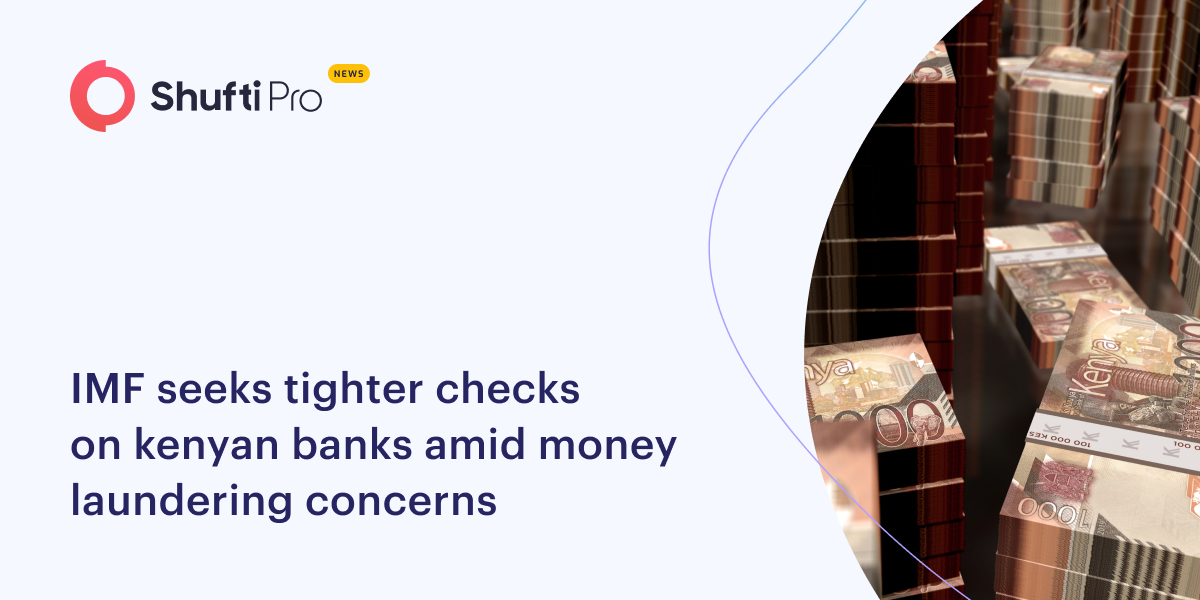 Explore More
Explore More
News
Irish Police warns about the latest internet fraud
The local Irish police (Gardai) is persuading people not to fall prey to the recent online bankin...
 Explore More
Explore More











































































